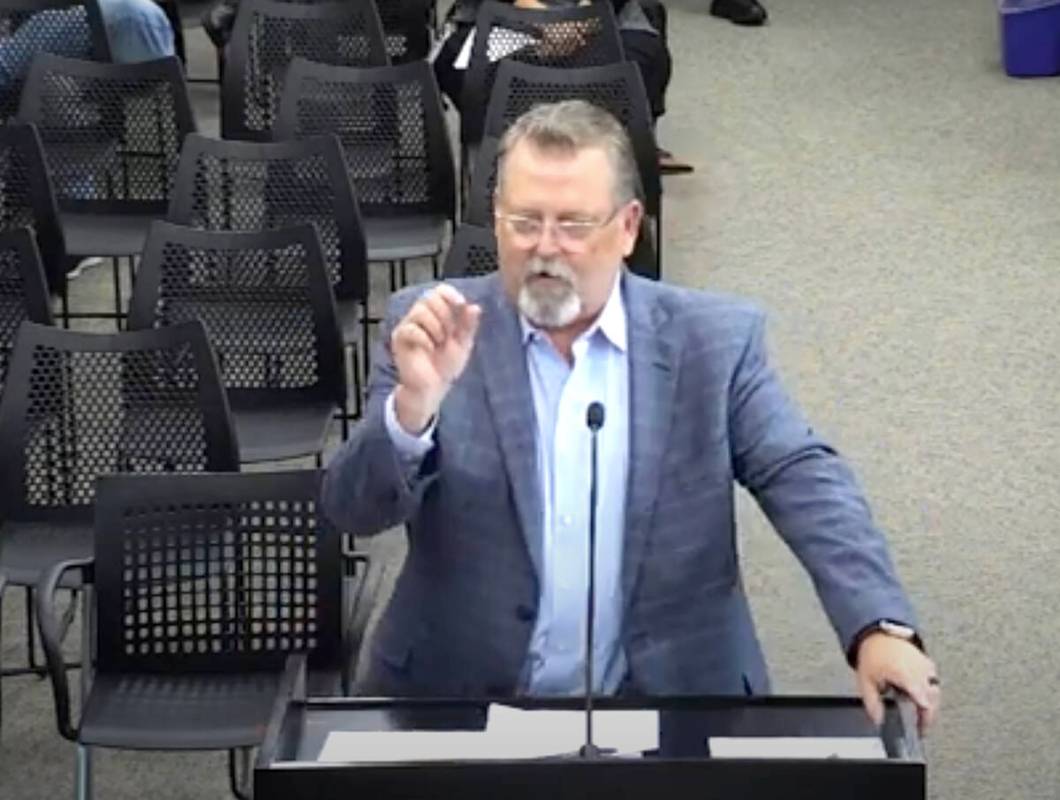
The first order of business was to make sure there was no confusion about potential nepotism as Boulder City Mayor Joe Hardy introduced the lobbyist contracted by the city.
“Now we’ll hear from Warren Hardy, no relation,” he said.
“I claim you all the time, mayor,” Hardy replied.
The Hardy not sitting on the dais is the principal of a consulting and lobbying group called the Hardy Consulting Group, which was hired by the city to represent its interests during the recently completed 2023 session of the Nevada State Legislature. He was at the meeting to report on that session.
Though he spoke about a number of bills, including one that had been sponsored by Boulder City seeking to give local governments some additional flexibility on how tax dollars generated by properties in a redevelopment zone can be spent, there was a common thread that ran through the entire discussion: a seeming trend for the state government to seek to usurp power and authority traditionally exercised by local governments.
One example offered was a bill that did not directly affect Boulder City but would have set a troubling precedent. As Hardy described it, Senate Bill 184 would have forced the city of North Las Vegas to change its charter in significant ways.
“I don’t want to get emails from my legislative friends who might be listening,” Warren Hardy said. “The Legislature has the absolute right to make a charter change. But historically, those issues have been left to local governments. This set a precedent of state government deciding what is best for local government.”
While the bill did pass, it was vetoed by Gov. Joe Lombardo.
Another example was Senate Bill 92, called the “sidewalk vendor bill of rights”. Hardy outlined that, as originally written, the proposed law would have made it close to impossible for local governments to regulate street vendors.
“That was a piece of legislation that took more time than probably any we dealt with at a local government level,” he said. “What we ended up with is a bill where we cannot charge individuals who are street vending criminally but we can charge them if they are not following city ordinances. But we left completely intact the city’s ability to adopt the ordinances they feel are right for their city.”
Other bills the Hardy Group worked on included one that would have said that city employees can’t work outside when the temperature is over 90 degrees, which would have made response by law enforcement and fire personnel impossible for many months every year, one that would have removed the city’s right to control cannabis-related events and one that would have mandated that so-called “prevailing wage” be paid on any project that received any government subsidy. This could have included something as minor as the city waiving a $1 fee for copying a document.
All of these bills either failed to pass or were vetoed.
“The mayor asked me specifically to talk just briefly about things to watch for based on what the Legislature did, what it didn’t do, what the governor vetoed. And the one thing I will tell is that this issue of encroachment on local government authority is something we are going to have to watch very, very carefully,” he said.
“Boulder City is very different from most cities in Nevada,” Hardy continued. “We’re a small town in a large county. We have to take a very different approach when it comes to legislation. In my experience, it just requires that we spend time educating legislators why one size doesn’t fit all when it comes to legislation.”